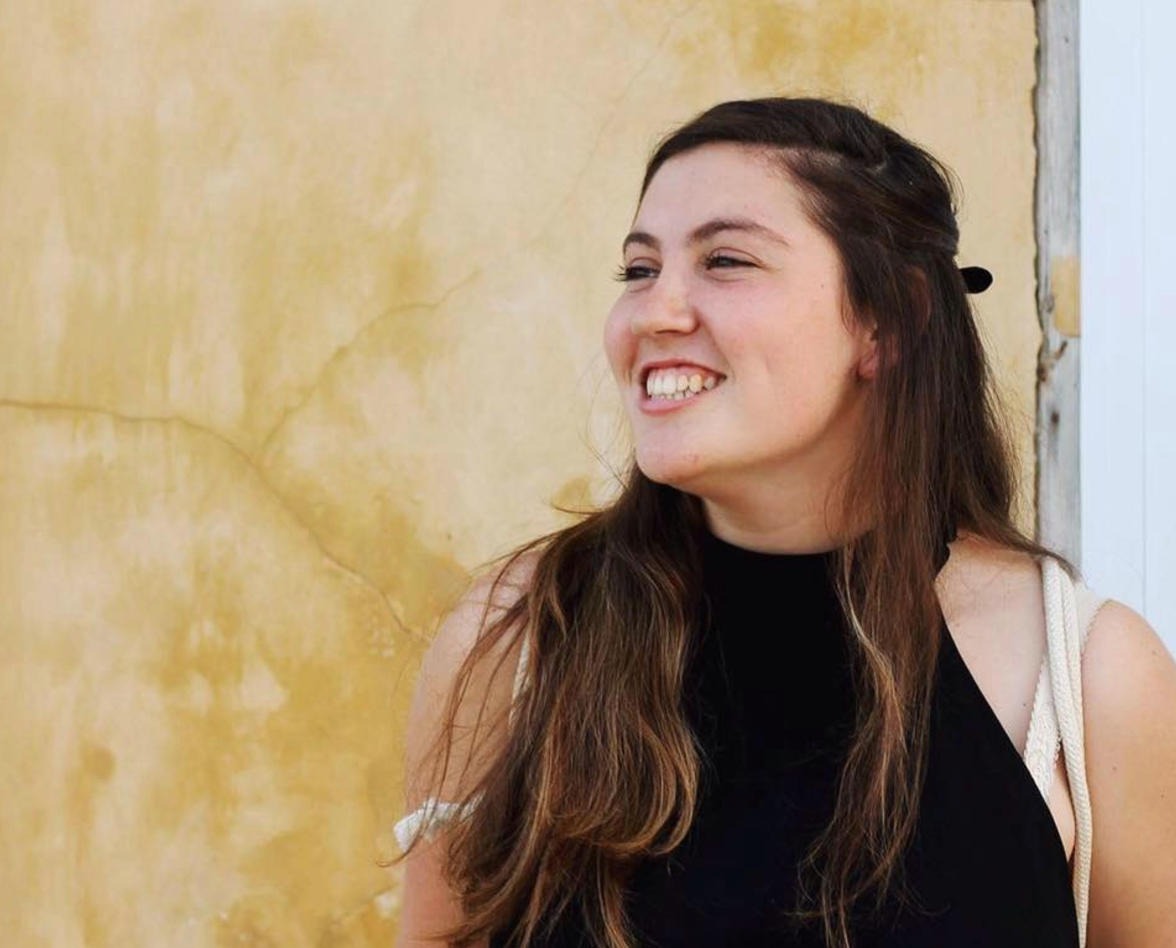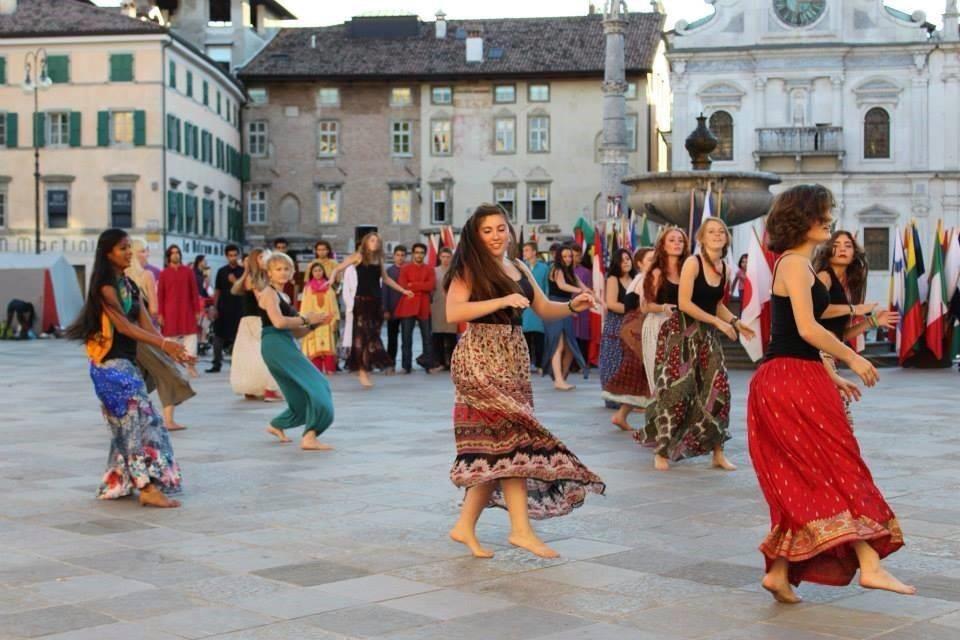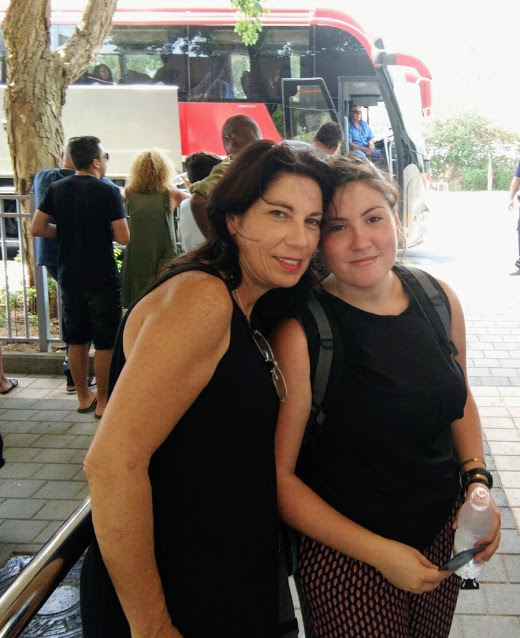‘There must be another way’: Israeli 19-year-old jailed for refusing military service
‘I do not believe in building walls but building bridges,’ pacifist Noa Gur Golan says in rare case of IDF draft refusal

Your support helps us to tell the story
From reproductive rights to climate change to Big Tech, The Independent is on the ground when the story is developing. Whether it's investigating the financials of Elon Musk's pro-Trump PAC or producing our latest documentary, 'The A Word', which shines a light on the American women fighting for reproductive rights, we know how important it is to parse out the facts from the messaging.
At such a critical moment in US history, we need reporters on the ground. Your donation allows us to keep sending journalists to speak to both sides of the story.
The Independent is trusted by Americans across the entire political spectrum. And unlike many other quality news outlets, we choose not to lock Americans out of our reporting and analysis with paywalls. We believe quality journalism should be available to everyone, paid for by those who can afford it.
Your support makes all the difference.“When I was little, I dreamt of being an IDF war pilot,” says 19-year-old Noa Gur Golan.
Now, however, the teenager is sitting in Military Prison 396 near Haifa. She’s been branded a traitor and a coward. It’s not clear when she is going to be released, because she’s being detained for refusing to do her military service with the Israel Defence Force (IDF).
Noa is not allowed to receive international calls. But in her answers to The Independent’s questions, relayed via her mother Iris and aunt Michal, who were also interviewed for this exclusive story, the young woman provides an extraordinarily rare insight into what happens to young people in Israel who would rather face prison time than compromise on their opposition to Israeli policy.
All three women are keen to stress that Noa loves her country and is happy to serve it. But since the conscription process began when she was 17, Noa has come to the conclusion she cannot condone the “violence and death” inherent in being part of a military organisation.
“If war is the answer, we are asking the wrong question,” reads a postcard nestled among photographs of family and friends on a pin-board in her bedroom.
It is highly unusual for Israelis to refuse to do their compulsory military service on non-religious grounds. Iris says Noa’s decision was a “huge shock” – no one in the family or anyone else Noa knew had ever done it before.
Her older brothers, one 29 and one 24 – the latter finished his own conscription 18 months ago – support Noa’s choice, but still think she is naive, Iris says.
All Jewish, Druze and Circassian Israeli citizens over 18 are expected to report for duty in the IDF; Israel’s 20 per cent Arab population is exempt. Men serve for two years and eight months, and women for two years.
In practice, only around 75 per cent of potential conscripts end up enlisting. Most who evade service do so because they are Orthodox, and Orthodox women are the only major group of people allowed to complete civic, rather than military, service.
There are no publicly available statistics, but the support network Noa is currently relying on believes only 10 women have been imprisoned for refusing to serve on non-religious grounds in the last two years.
A handful of people each year manage to avoid military service by proving they are pacifists – but after two hearings so far, this is a position Noa is finding it difficult to convince the authorities of.
Some pro-bono legal organisations which help defend conscientious objectors report that defendants are asked questions such as: “Would you kill someone hurting a member of your family?” to which any other answer than “no” is used as evidence of a non-pacifist outlook.

Jersualem-based activist Sahar Vardi said the process is "very difficult".
The military committees have "a very narrow definition of what pacifism is, and traditionally do no exempt anyone who hints to a 'political' reason for refusing (mainly opposition to the occupation)," she said via email.
The IDF did not immediately respond to The Independent’s request for comment. In an emailed statement dated 13 August, however, a spokesperson said that "Service in the IDF is mandatory by law, and is critical in maintaining the security of the state of Israel.
"The committee found that Gur-Golan did not meet the conditions of conscience objection and thus her request was denied. On the day of her recruitment, Noa violated the law and thus "disciplinary action was taken against her".
"Refusal to draft, in violation of the law, is extremely rare and the IDF deals with a very minor number of such requests per year," a statement added.
"It is rare for teenagers to refuse the draft and it is found only within circles on the hard left", says Yehuda Shaul, the founder of anti-occupation veterans group Breaking the Silence.
“These people pay a very high personal price for their decisions and they usually spend three months to a year-and-a-half in prison.”
Iris says it is hard to understand the role the IDF plays in the country if you are not Israeli.
“We grow up with the IDF, it is part of the education we get in Israel. It keeps us safe and service is a part of the fabric of our lives,” she says.

Noa herself, in an open letter written before she refused the draft last month, says that experiencing the 2014 Gaza War as an adult working with children opened her eyes to “the kind of atmosphere children in this country grow with. An atmosphere full of hate and fear. They grow up in a reality where violence is the norm.”
As a result of her choice, she has been detained for a total of 31 days since 12 July – released briefly between military committee hearings before being locked up in Prison 396 again, where she shares a room with up to nine other women and can only see her family once a fortnight.
While inside, Iris says, Noa has been talking to other detainees about what she is doing, and why.
“She is well-liked, I think. She showed me a letter that one of the women who has since got out sent and she says she respects her even if she doesn’t agree with Noa’s opinion,” Iris says. “They are learning from each other.”
Noa, for her part, says she does not “look away from the complicated reality in which we live – the terror attacks and the wars” and does not “blame any soldier or any person who sees life differently than I do.”
Her views, however, have changed since she went to Italy to complete her last two years of school at the United World College of the Adriatic, a sixth-form college which is part of a network of 17 scholarship-based institutions around the world which bring together students of different nationalities to “make education a force to unite people, nations and cultures for peace and a sustainable future”.
Noa and a Palestinian girl from Hebron were the recipients of the two scholarships available for Israel and The Territories to attend the college in Duino in 2014.
“I have had the privilege of meeting friends from the Palestinian Territories, Jordan and other countries. I have gotten to know the people, their personal stories and not the perceptions we were raised upon,” Noa says.
“The love I feel towards my friends from my city Netanya is identical to the love I feel towards my friends from Hebron. With this in mind, I have realised that I will not agree to take part in the oppression of another nation, that I do not believe in building walls but building bridges.”
For Iris, Noa’s decision has been very hard. Her military service was 30 years ago, and the idea of refusing when she was young was “unthinkable”.
“I broke down after I saw her in there the first time,” Iris says of military prison. “She is alone and afraid. But she believes what she is doing is meaningful.
“Noa could lie to get out of military service, she could claim to be unwell or religious, but she’s not, she’s making a point of principle. And for that I am very proud of her.”
“I see my refusal as an active step of showing an alternative to the violent reality in which we have gotten used to living,” Noa’s open letter concludes.
“For the sake of true security, I believe there must be another way.”
Join our commenting forum
Join thought-provoking conversations, follow other Independent readers and see their replies
Comments